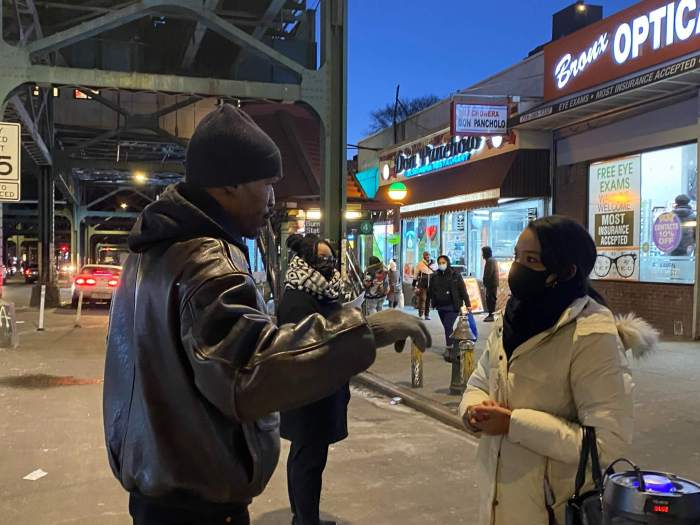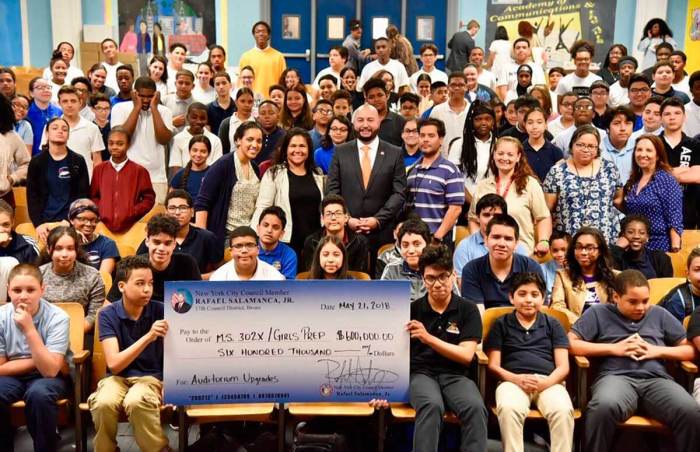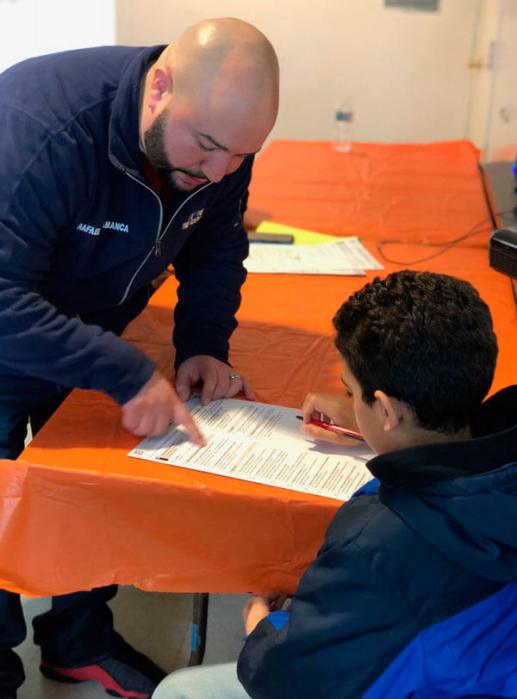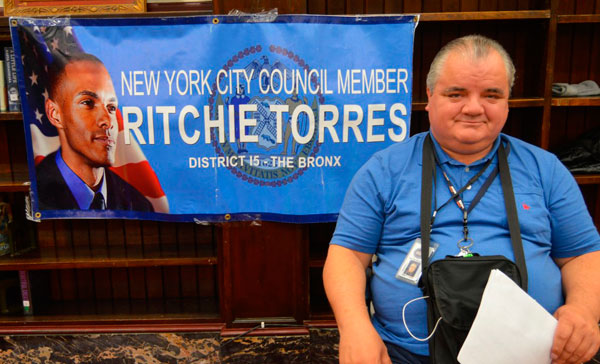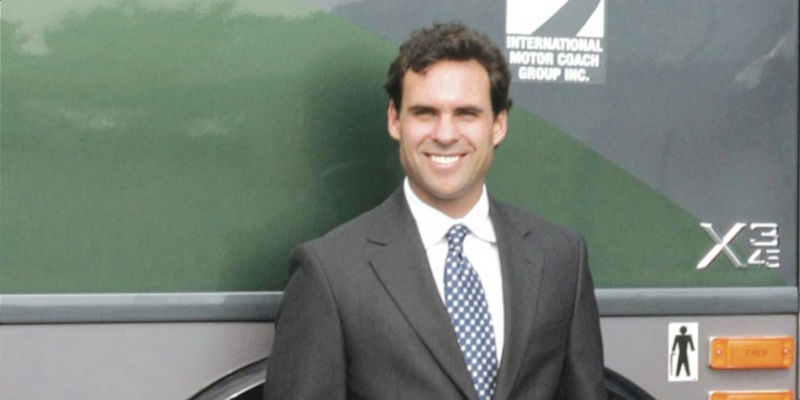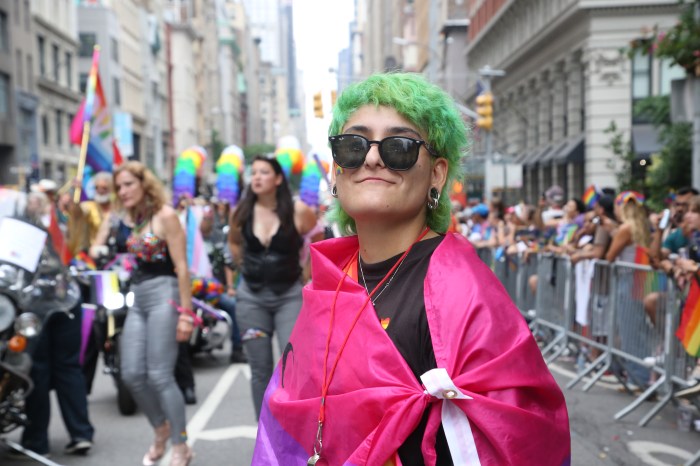In tune with a 2018 ballot referendum, the NYC Civic Engagement Commission is expanding participatory budgeting on a citywide scale, giving residents a say on services and programs to fund.
Participatory budgeting allows residents to have a tangible say in where public money goes through a process that involves gathering ideas from residents, vetting them and then allowing residents to vote online, by paper ballot or by phone to choose which projects get funded. In this effort, residents ages 11 and older, regardless of immigration or incarceration status can participate.
The process has taken place in NYC on the City Council district level for more than a decade, but this marks the first of its kind on a citywide scale in NYC, according to the city’s Civic Engagement Commission (CEC), the entity overseeing the process. The initiative is launching in the Bronx on Wednesday.
A major difference between this citywide effort and the City Council’s is that the funding is for expense projects rather than capital projects. Examples of expense projects, according to the CEC, are programs, events and services like after-school programs, art classes and community-based mental health initiatives. Capital projects, on the other hand, involve construction and renovation, like new housing or playgrounds.
The CEC was created by way of a ballot referendum in November 2018, which required the entity to implement a citywide participatory budgeting program. The entity was also directed to partner with community-based organizations and civic leaders, promote city services, assist city agencies’ civic engagement, provide assistance to community boards, and develop a plan to consider the language needs of New Yorkers in regard to the commission’s initiatives.
But the citywide budgeting effort was delayed until this year because of the COVID-19 pandemic, according to Benjamin Solotaire, an advisor for the initiative.
The commission has spearheaded similar participatory budgeting initiatives through its Taskforce on Racial and Equity program, which focuses on areas with health and socioeconomic disparities, many of which are in the Bronx, as well as the It’s Our Money initiative, a process solely for youth.
The program is being launched in the Bronx on Wednesday at a public event from 11 a.m. to 4 p.m. at the Roberto Clemente Plaza at 530 Willis Ave.
There will be remarks from elected officials and partner organizations from 11 a.m. until around 12 p.m., and the event will continue until 3 p.m. with a DJ and local food. Attendees can learn how the process works as well as submit ideas at the event (residents can also submit ideas online). City agencies will also be present with information about resources on a range of topics.
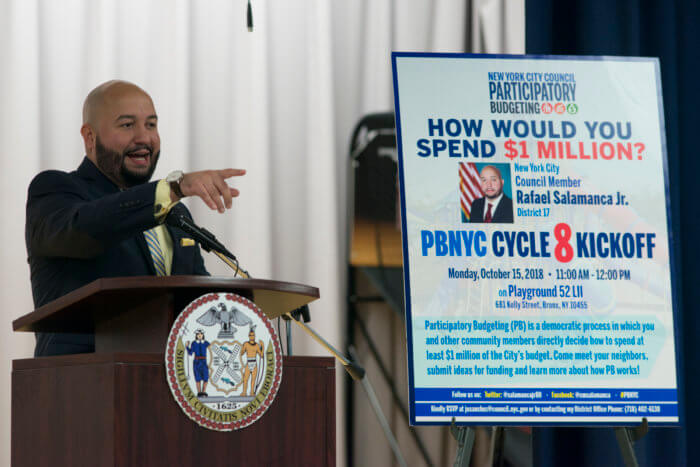
A total of $5 million in expense funds will be split up across the city as part of this initiative.
The idea-generating process will take place until Nov. 9, and ideas will be vetted until April of next year. From May to June next year, residents will vote and winning projects will be announced. Projects will then be funded and implemented from July 2023 to June 2024.
“The CEC is committed to the values of collaboration and manifesting community power,” CEC Chair and Executive Director Sarah Sayeed said in a statement. “Participatory budgeting is one pathway for engagement that enables communities to move their voice into action on decisions that impact their lives. We believe that by working together with people affected by policies, we can identify and solve our collective challenges and build the interdependence required for a healthy and resilient democracy.”
The model began in Porto Alegre Brazil in 1989, according to the CEC, and has since been implemented in more than 10,000 municipalities across the world to democratically allocate funding. The initiative was implemented in NYC through the City Council starting with the 2011-2012 budget cycle from the efforts of then councilmembers Brad Lander, Melissa Mark-Viverito, Jumaane Williams and Eric Ulrich.
Reach Aliya Schneider at aschneider@schnepsmedia.com or (718) 260-4597. For more coverage, follow us on Twitter, Facebook and Instagram @bronxtimes

















